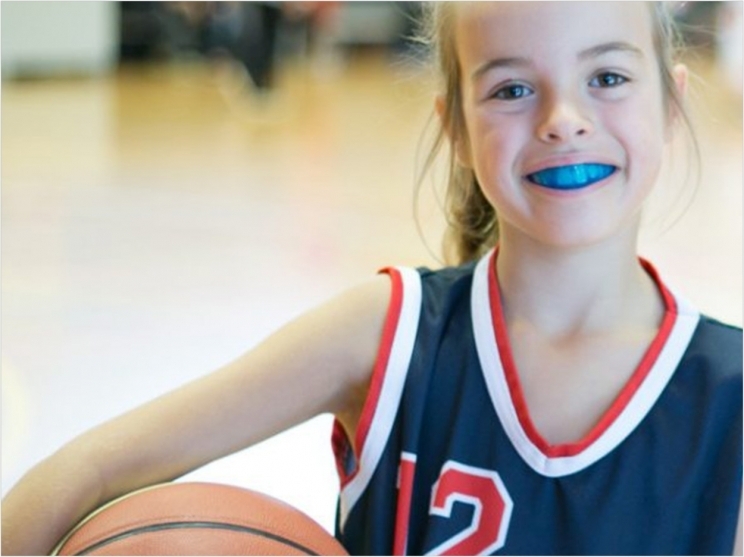WEAR YOUR MOUTHGUARD!!
February 26, 2020

Mouthguards are nothing new, but there are still far too many sports related injuries. Although most youth sport organizations have cracked down on making kids wear mouth protection, there are still injuries occurring. Taking the appropriate protective measures while on the court, field, rink, or ring can save mouths from serious injury and costly dental repairs.
Any sport that presents the chance of contact or collision with another person, object, or surface can potentially cause injury to teeth, jaws, and oral soft tissue. These sports include, but are not limited to, football, basketball, soccer, hockey, boxing, and lacrosse. Individuals who participate in sports, such as biking, inline skating, or skateboarding are also at risk for injury.
Teeth get in the way. Other than your nose, front teeth are “out there” and your lips only provide minimal protection. For example, a student I saw this past spring was injured playing squash at a local private school. Squash is a non-contact sport, but the game is played in close proximity to another player with a swinging racquet. The student I treated had been hit in the mouth with the other player’s racquet. He required a root canal on one front tooth with a crown. The other front tooth needed to be extracted and replaced with a dental implant. All of this could have been prevented or at least damage lessened with the use of a mouthguard.
For some reason, baseball is one of those sports where kids do not wear protective mouthguards. No matter what age level, a player can misjudge a ball or a ball can take an unexpected bounce, causing serious injury.
In lacrosse, both boys and girls should always be wearing mouth protection. That ball is extremely hard and heavy. Boys are better protected than girls because they at least wear helmets; both should be wearing helmets, in my opinion.
A custom mouthguard made by your dentist covers the upper teeth with a soft, flexible material that prevents serious injuries such as broken teeth, jaw fractures, cerebral hemorrhage, and neck injuries. It decreases the chance of the lower jaw jamming into the upper jaw or being pushed back into the temporomandibular joint (TMJ). Mouthguards may reduce the severity and incidence of concussions as well.
Custom mouthguards, made by a dentist, fit 100 times better than anything you can buy in a store. This not only improves performance (making it easier to breathe), but also makes it more likely the athlete will keep the mouthguard in. They may cost more than the boil/bite generic ones, but they are better, and that is enough reason to consider them.
If you seek treatment immediately after the injury occurs, your dentist often can save knocked-out teeth and repair minor chips and cracks with appropriate dental materials. See your dentist for evaluation if your tooth changes color, if you experience any pain, or if you notice any swelling in or around your mouth following trauma.
Even if it isn’t “cool” to wear a mouthguard in the sport you are playing, I strongly recommend it. You only get one set of your own teeth.
Dr. St. Clair maintains a private dental practice in Rowley and Newburyport dedicated to health-centered family dentistry. If there are certain topics you would like to see written about or questions you have please email them to him at jpstclair@stclairdmd.com. You can view all previously written columns at www.jpeterstclairdentistry.com/blog.
No Comments
No comments yet.
RSS feed for comments on this post.
Sorry, the comment form is closed at this time.







